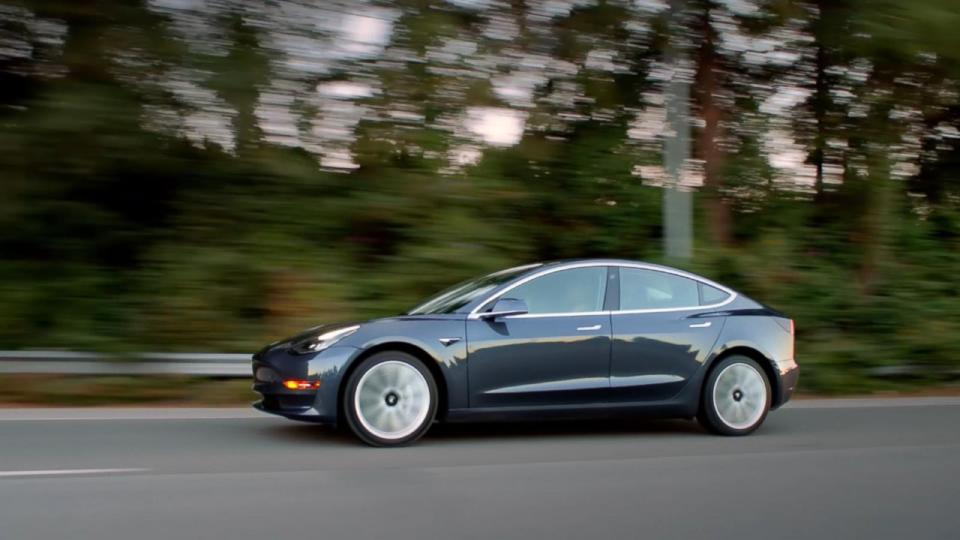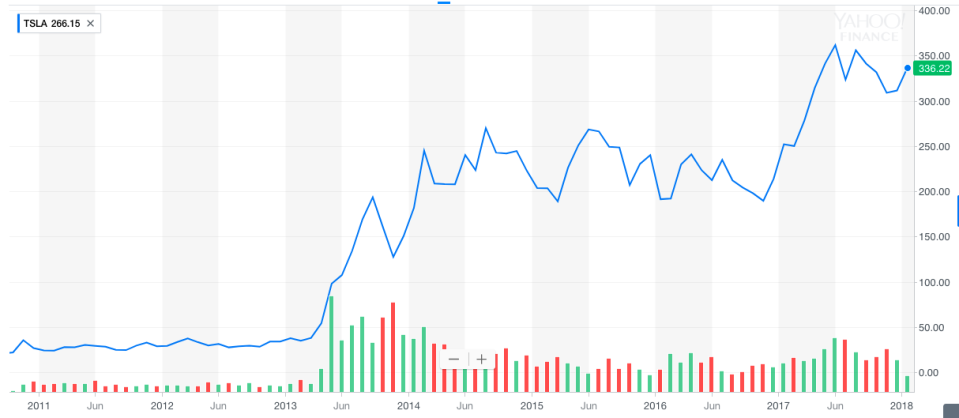The buzz in Detroit: Who will buy Tesla?
Tesla isn’t even present at this year’s Detroit show—typical for a company that shuns the traditions of the hidebound auto industry. But it’s a topic of conversation nonetheless, as industry insiders speculate over whether the company can iron out manufacturing snafus that have marred the launch of its first mainstream vehicle, the Model 3 sedan. Tesla desperately needs the cash flow from vigorous Model 3 sales, yet production has stalled due to problems with the big batteries that power all Tesla electrics.
“As somebody said about health care, production is complicated,” Rebecca Lindland of Cox Automotive said during a presentation for journalists at the Detroit show. “Tesla has got to get Model 3 production figured out.”

In its 12 years of operation, Tesla has never turned an annual profit. Analysts surveyed by S&P Capital IQ expect the company to post a loss of nearly $1.5 billion for 2017, which would be its biggest ever. The cash crunch could become acute in 2018 if Tesla continues to miss production targets for the Model 3. Bloomberg recently warned that Tesla could run out of money by August if the Model 3 production woes continue. And even if Model 3 production recovers, Tesla–with US market share of just half a percentage point, or so–lacks the scale that lets competitors spread costs among millions of vehicles sold every year.
Investors don’t care, for now. The stock, at around $336, is close to record highs, which has pushed the company’s market value to $57 billion—more than Ford’s (F). But the shares could plummet if Tesla hits real financial trouble and it becomes clear the Model 3 won’t save the company.
It’s hard to imagine another company making a bid for Tesla at its current valuation. But if the stock tumbles and Tesla becomes cheaper, it could become a juicy target. Musk himself might even broker a deal, especially if if bankruptcy begins to seem plausible.
Potential suitors?
So who might be interested in buying Tesla? Musk reportedly tried to sell his company to Google in 2013, at a time when the startup was nearly out of cash. But Tesla scraped by and the deal fell through. Since then, Google parent Alphabet (GOOGL) has established a dedicated unit, called Waymo, that’s developing self-driving technology and other software it wants to sell to automakers. Waymo doesn’t build cars, so it might be interested in bringing Tesla into the family.

But it’s not a given that a high-margin Silicon Valley tech company would buy into the low-margin auto manufacturing business. The same goes for Apple (AAPL), which is supposedly developing its own automotive technology and is an oft-rumored Tesla suitor. The match-up of Silicon Valley hardware and software might sound intriguing, but from the perspective of the software manufacturer, it might be far better to supply high-tech components to traditional automakers, and let them worry about bending the metal.
Mercedes-Benz and Toyota have both partnered with Tesla in the past, and Mercedes even bought, then sold, a stake in the company. Toyota tends to develop new brands and technology in-house and making a bid for Tesla would be out of its corporate character. Not so Mercedes, whose parent Daimler-Benz bought Chrysler in 1998. That deal ultimately failed, but Tesla, in theory, would be a smaller, more targeted acquisition that wouldn’t require much realignment at Daimler’s Stuttgart headquarters the way the Chrysler deal did.
Many other automakers covet Telsa’s electric technology, along with its sterling reputation among car buyers. Even at a discount, however, Tesla could be expensive. General Motors (GM) might have the wallet to buy Telsa—and the narrative of such a deal would be compelling. GM has its own electric technology, of course, and by some measures it’s ahead of Tesla. GM sold more than 23,000 all-electric Chevy Bolts in 2017, and it just applied for federal permission to operate a driverless car, Cruise AV, without pedals or a steering wheel.
Since emerging from its own bankruptcy in 2009, GM has become firmly profitable, with an estimated $9.4 billion profit in 2017, according to S&P Capital IQ. Tesla loyalists might revolt if GM went after Tesla, since GM is the enemy, in a way—it’s exactly the sort of dinosaur Tesla is supposed to bury. But GM has been spending heavily on the technologies of the future, and if it operated Tesla as a standalone division, with its own identity and perhaps even Musk’s ongoing involvement, Teslanauts might settle down. Tesla might still go it alone for the foreseeable future, but that could make the luxury known as profitability as elusive as ever.
Confidential tip line: rickjnewman@yahoo.com. Encrypted communication available.
Read more:
Rick Newman is the author of four books, including Rebounders: How Winners Pivot from Setback to Success. Follow him on Twitter: @rickjnewman
Follow Yahoo Finance on Facebook, Twitter, Instagram, and LinkedIn


